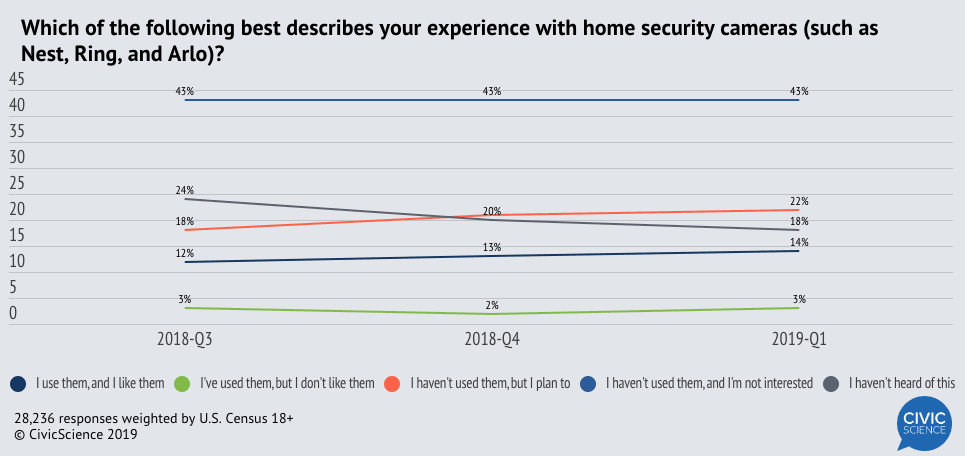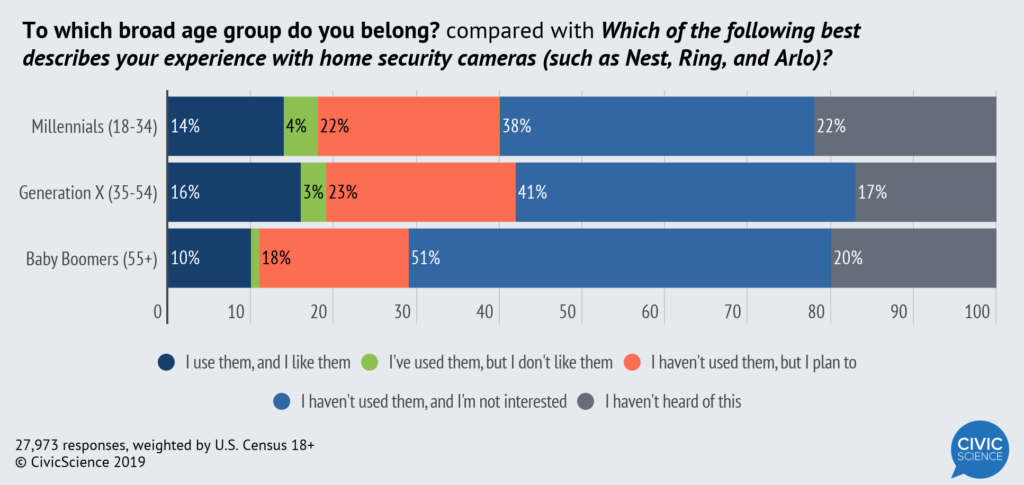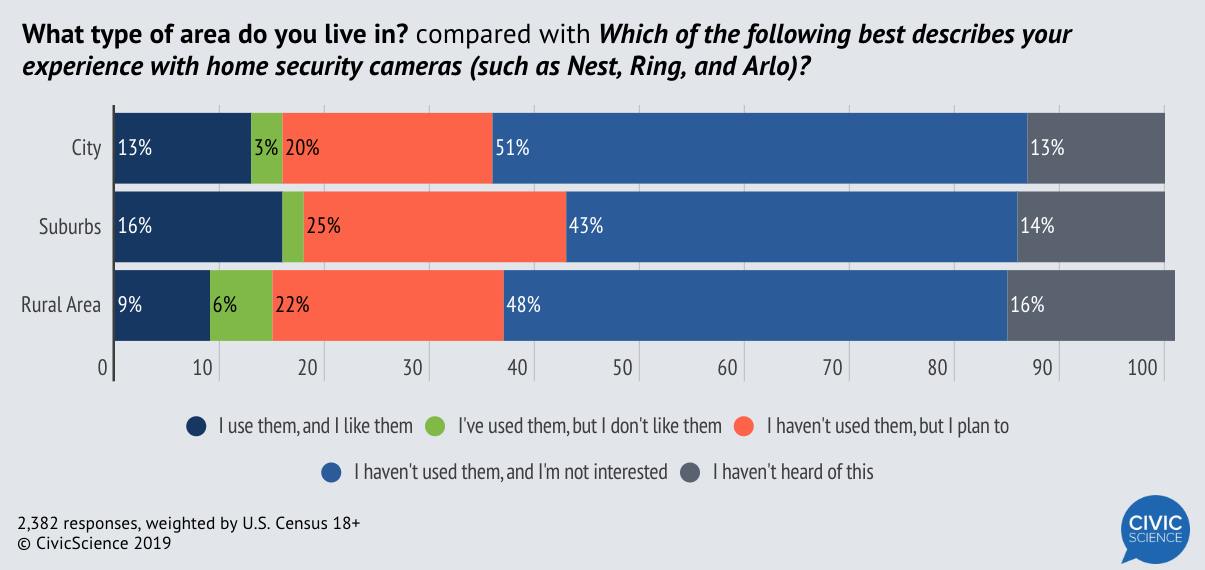Smile—you’re probably on camera. Whether filling up at the gas station, stocking up at the grocery store, or just sitting in your car at a red light, chances are you’re being filmed. And those are only some of the public places you might encounter security cameras. More and more, cameras are appearing in homes, too.
For as long as there have been residences to protect, there have been security systems. They’ve ranged from crude (dogs, cattle, ducks) to advanced (remember your neighbor’s ADT sign?). Security companies still offer equipment and services, but today’s improved technology and our increasing desire to stay connected have prompted companies like Amazon and Google to enter the market, producing affordable, do-it-yourself systems equipped with motion sensors, lights, and, of course, cameras.
It’s obvious that security cameras have clear benefits. Amazon’s Ring and Google’s Nest offer doorbell cameras, which can nab someone stealing a package from your front porch or alert you to people outside your home. Indoor cameras can record break-ins or, more happily, help owners monitor pets while they’re away. Nest uses facial recognition technology to remember people, and Amazon has filed patents that suggest using the tech to spot “suspicious” people and contact the police. But, as the Washington Post reminds us, there are drawbacks to surveillance. On top of these concerns, security cameras are just as vulnerable to hacking as other devices, requiring only a username and password to gain access.
Some might consider these Orwellian outcomes far-fetched, something you’ll only find in next season’s Black Mirror. But how do most people feel? For consumers, do the benefits outweigh the issues? To get a glimpse of where we stand on home surveillance, CivicScience asked people about their experiences with home security cameras, and the results are eye-opening.
Although in the past month, 44% of respondents said they haven’t used a camera and aren’t interested, 17% of respondents have used them, and the vast majority like them. Even more remarkable, another 22%—over ⅕ of respondents—plan to use them in the future. And when we analyze the numbers over time, we find that more people are learning about these devices and planning to use them. Since the third quarter of 2018, the percentage of people who have used and who like home security cameras has grown slightly, while those who plan to use them has eclipsed those who have never heard of them.
Of course, using a device doesn’t necessarily equate to feeling at ease with that device. (More on that in a moment.) But with so much interest in home security cameras, it’s worth determining who these users could be.
Younger, Savvier, and Suburban
Home security cameras definitely have greater appeal for younger people. It could be that many older people, having moved into apartments or retirement centers, don’t see a need for them. Or that younger generations, having come of age in a post-9/11 world, are more accustomed to surveillance in general.
Whichever the case, Millennials and Gen X-ers use home security cameras the most, which increases in middle age—the age range that typifies homeownership in the US. And though 38% of Millennials polled say they aren’t interested in using cameras, that number could fall as more Millennials buy or rent homes and have reasons to look into such devices.
Most interesting is where people are using, or are thinking of using, home security cameras. Respondents in rural, urban, and suburban areas have all shown a degree of interest in these cameras, but a larger portion of those living in the suburbs have tried and liked home security cameras (16%). Additionally, ¼ of suburban respondents say they plan to use home security cameras in the future. This may sound counterintuitive. After all, why would people in areas with less crime be interested in security cameras? For one, the suburbs are home to fewer apartment buildings—which often sport their own security—and more single-family houses. And two, as the Pew Research Center points out, our perceptions of crime usually fail to line up with reality.
This should all be fairly good news for the home-security market. In the near future, as more and more tech-savvy Millennials acquire the means to buy houses, their familiarity with, and interest in, home security cameras should only rise higher.
A Note on Comfortability
We did mention, though, that using or wanting to use a device doesn’t mean you feel completely comfortable with it. As many as 45% of people who use home security cameras and like them admit they’re “very concerned” about data hacks of some kind. Another 43% are “somewhat concerned,” leaving only 11% without any misgivings. And the numbers aren’t much better for people planning to use home security cameras, though they are still planning to use them.
Surveillance equipment may never fully shake the label of Big Brother, and that’s not a bad thing. As consumers and members of society, we should always strive to know as much as we can about the products we’re buying and using. If manufacturers of home security cameras can assure the public these devices are digitally secure, that could go a long way to easing people’s uncertainty about them, and probably bring more people into the do-it-yourself home-security fold. Whatever happens, we’ll be watching. Considerately, of course.













